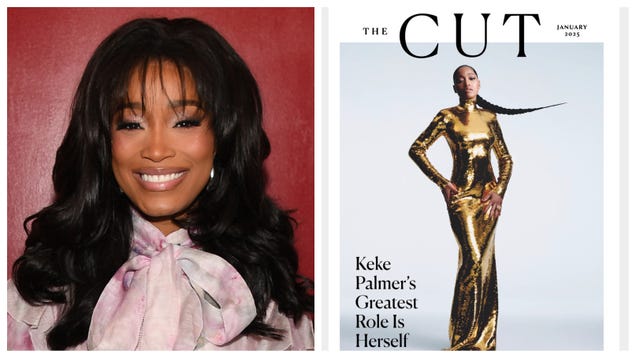.jpg)
The ruling Croatian Democratic Union (HDZ) is set to increase its seats in parliament after coming out on top in Sunday's election, riding high on promises to get the country back on its feet after the coronavirus crisis.
Figures from the central election commission showed HDZ on track to win 68 out of the 151 seats in the parliament according to 87 percent of processed results — 13 seats more than its current 55. But it would still need to form a coalition to reach the 76 seats needed to govern.
“Thank you for the superb results and the great victory of HDZ,” incumbent Prime Minister Andrej Plenković said in an address to supporters at the HDZ election headquarters. “Tonight we celebrate, while tomorrow morning we go back to working for Croatia at full steam.”
The results are seen as a crushing defeat for the Restart Coalition, a left-leaning political alliance led by the chairman of the Social Democratic Party (SDP), Davor Bernardić, which came in second with 42 seats. Polls ahead of the vote placed them close to and at times ahead of their conservative competitors.
“Of course this result is bad for SDP and the Restart Coalition. I will not evade responsibility and am prepared to go. Tomorrow we will discuss this at a meeting of the leadership of the party,” Bernardić said at a press conference at his party’s election headquarters.
HDZ's management of the pandemic as well as SDP infighting helped HDZ take the lead, analysts say.
“The disappointing numbers for SDP are a result of internal disunity in the party as to whether it should be a centrist or center-left party,” said Helena Popović, a sociology lecturer at the University of Zagreb. “There is a significant grouping within the party who do not support Bernardić and his leadership of the party and Bernardić has largely ignored this over the years.”
While Plenković made no reference to possible coalition partners in his victory speech, HDZ should have an easy time finding a partner based on the results, analysts predict.
A potential contender is the right-wing populist Homeland Movement, which came in third and was formed after its head candidate, folk singer Miroslav Škoro, failed to pass the first round of the presidential election in December last year. Škoro’s party enjoys the support of hardline nationalists he has campaigned against abortion, announced he would halt projects considered to be “anti-Croatian” and said he would refuse to include the ethnic Serb minority party in a governing coalition.
Daniela Širinić, a political scientist, said the results of Sunday's vote show the "Croatian political space has moved significantly to the right.”
Plenković called the election months earlier than originally scheduled, in part in a bid to avoid a potential drop in support for his party over the summer as travel to the highly tourism-dependent country dries up amid the pandemic. Analysts have predicted Croatia could face its worst economic crisis since the disintegration of Yugoslavia in the 1990s. Croatia places first in the EU when it comes to the portion of GDP reliant on tourism, at 18.4 percent.
The country has reported a relatively small number of coronavirus infections compared to the rest of Europe, with 3,151 cases recorded as of Sunday and 113 casualties in a population of around 4 million, but cases have been on the rise in the last 10 days.
“Whoever is in government after the elections will face an extraordinary challenge this fall. This inevitable crisis will require a lot of skill from whoever is in power,” said Popović. “In many ways, this is HDZ’s fault since they have ignored calls over the years to shift the reliance of the economy away from tourism and towards industrial development, green energy and other sectors.”
Croatia's political landscape has largely been dominated by the HDZ and SDP since the country emerged from the fall of the Socialist Federal Republic of Yugoslavia.
HDZ led the country through the war in former Yugoslavia and often campaigns on nationalist sentiments, conservative social values and neoliberal economic policies. SDP is a successor to the state party that led during the socialist period and draws left-leaning voters.
“The HDZ did receive a boost from their handling of the pandemic, but over the years they have created a clientelist structure of voters who primarily vote to keep the jobs they received through HDZ’s influence in the country or regionally,” Popović said.
The HDZ-led government also just wrapped up its six-month stint at the helm of the Council of the EU presidency, but its use of other EU leaders in a video posted on the eve of the election stirred controversy: Both European Commission President Ursula von der Leyen and the EU's democracy and demography chief, Dubravka Šuica, appeared in the clip with other members of the European People's Party, to which HDZ belongs. Critics questioned whether the video breached expectations of neutrality for the Commission.
The Commission's chief spokesperson Eric Mamer tweeted Sunday that "The President recorded a short sound bite for use in a video involving a number of EPP politicians. It was meant as a contribution in her personal capacity. Regrettably, this was not made clear in the final version of the video."
Turnout in Croatia was lower than in the last parliamentary election in 2016 — at 46.3 percent compared to 52.6 percent. But ethnic Croats in neighboring Bosnia and Herzegovina — who generally have dual citizenship — voted in greater numbers and mainly for HDZ.
from Politics, Policy, Political News Top Stories https://ift.tt/38tadhg
via 400 Since 1619


